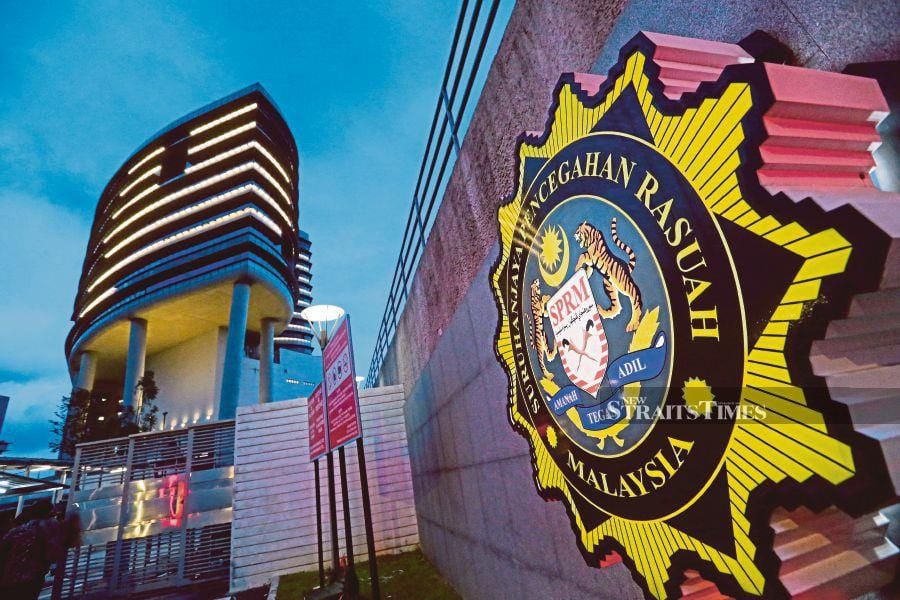NST Leader: MACC fulfilling its purpose
The Malaysian Anti-Corruption Commission (MACC) is at a crossroads between its quest to improve the war against graft and its awkward historical legacy.
The MACC will always be beleaguered by the perception of being beholden to (previous) powers-that-be who shackled investigations and arrests of whales of government misconduct, unless it was politically expedient.
However, once unshackled after the 2018 general election, the MACC doggedly sniffed out every whale without hesitation.
The MACC earned the benefit of the doubt after their efforts uncovered mind-boggling corruption. The list of suspects was a Who's Who of key figures and outsized players, which resulted in prosecutions.
The MACC has proven that they have the ability to tackle the unnerving job of tracking down leaders who mask their financial scandals while touting themselves as clean and conscientious. With the licence to probe very much serviceable, the MACC is finally operating by its mission statement: "fairness, firmness and trustworthy" in accomplishing the objective to "incessantly eradicate all forms of corruption, abuse of power and malpractice".
MACC Chief Commissioner Tan Sri Azam Baki, in an interview to mark the agency's 56th year, said he was focused on a singular objective: to swiftly address corruption that significantly impacts the nation.
Meaning that the focus is on high-profile cases that had resulted in "loss and misappropriation of public funds and misconduct by irresponsible parties, by deploying effective strategies using new technologies to curb high-impact corruption".
The MACC has meant what it declares: it is substantiating reports to back police Red Notice applications to Interpol, and searching for political scions wanted for questioning but have gone on the lam on foreign soil.
The MACC has also doubled down on its probe into a former minister and his former aides over a directly negotiated book printing contract.
Still, let's be realistic: MACC has acted autonomously thus far because it has been released from a very short and tight political leash. Despite some reservations, the public's response to the MACC's effort has been positive, translating into productive intelligence and information gathering, and bolder whistleblowers.
With public support growing, the MACC now has the wherewithal to scrutinise allegedly corrupt politicians, even if they scream "political persecution".
The MACC understands political theatre better than most, and understands even better that politicians these days automatically claim persecution if they are snared by the graft dragnet.
The MACC has proven it has the courage to make the hard decisions by charging VVIPs. It is time for all of us to throw our full support behind the commission to fulfil its responsibilities and act against the corrupt without fear or favour.
Sumber New Straits Times


